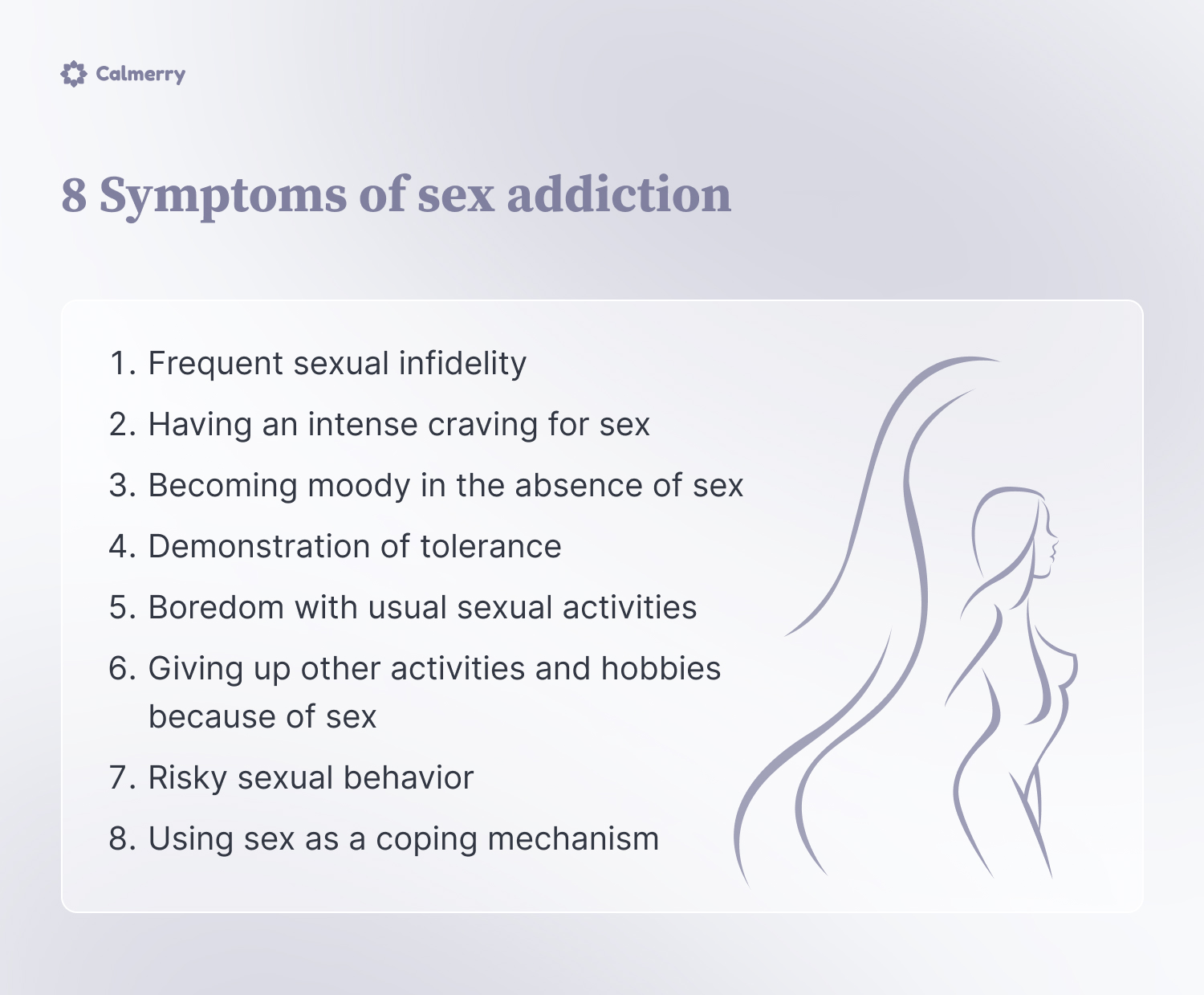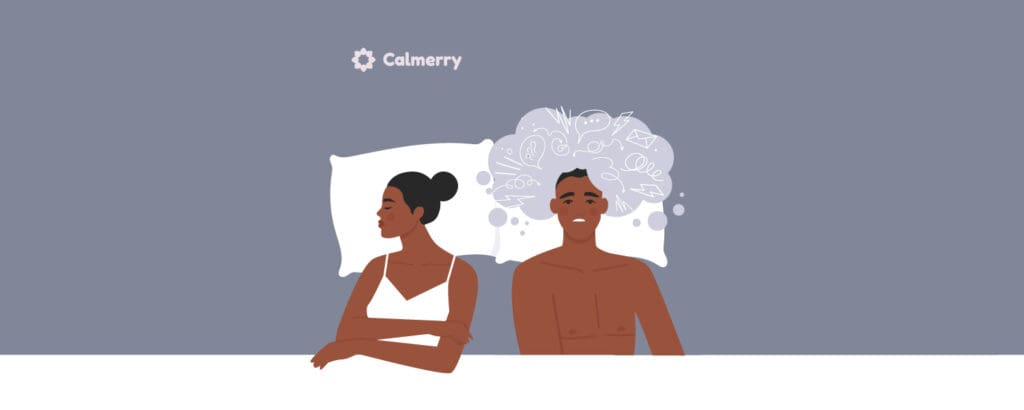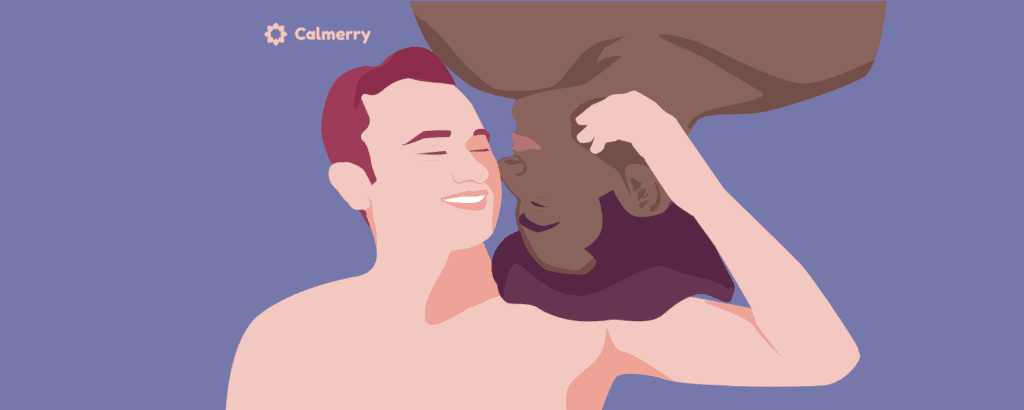Recognizing 8 Sex Addiction Symptoms and Signs

In this article
For many people, sex is a pleasurable experience they share with a significant other. However, for some, sex can become problematic, rising to the level of addiction.
While sex addiction is not an official mental health diagnosis, the reality is that hypersexuality can become a problem in some instances.
When sexual behavior starts to interfere with overall well-being and relationship functioning, it can meet the criteria for an addiction.
Someone who is experiencing symptoms of sex addiction may have trouble maintaining relationships. They can also find themselves in need of therapy to change their behavior.
Below, learn information about how sex addiction looks, as well as how to get help.
8 Symptoms of sex addiction
If you are worried that you or your partner shows signs of sex addiction, it’s helpful to understand the symptoms that go along with it.
Keep in mind that sex addiction isn’t a formal diagnosis. However, research suggests that symptoms of sex addiction can mirror some of the signs of substance addiction. [1] Pistre, N., Schreck, B., Grall‐Bronnec, M., & Fatséas, M. (2023). Should problematic sexual behavior be viewed under the scope of addiction? A systematic review based on DSM-5 substance use disorder criteria. Addictive Behaviors Reports, 18, 100510. https://doi.org/10.1016/j.abrep.2023.100510
So, there are some sex addiction signs that commonly present when a person experiences hypersexuality. These are described in more detail below.

1. Frequent sexual infidelity
Most people recognize that sexual infidelity is a problem. However, someone with a sex addiction may repeatedly betray their partners, even if they know it’s wrong.
This happens because when someone is addicted to sex, they will continue to seek out sex, even if it leads to consequences in their relationships.
With sex addiction, the behavior becomes quite compulsive, so a sex-addicted person probably isn’t thinking about their partner’s feelings when they engage in infidelity.
2. Having an intense craving for sex
Like drug addiction, sexual addiction can lead someone to have cravings for sex. [1] Pistre, N., Schreck, B., Grall‐Bronnec, M., & Fatséas, M. (2023). Should problematic sexual behavior be viewed under the scope of addiction? A systematic review based on DSM-5 substance use disorder criteria. Addictive Behaviors Reports, 18, 100510. https://doi.org/10.1016/j.abrep.2023.100510 This can mean that a person feels like they need sex to function.
In relationships, this may look like frequently demanding sex from a significant other to meet the cravings. Or, a person may feel compelled to hook up with someone or view porn, and they won’t feel satisfied until the desire is fulfilled.
3. Becoming moody in the absence of sex
Some research has shown that people who show signs of sex addiction have withdrawal symptoms when they go without sex. [1] Pistre, N., Schreck, B., Grall‐Bronnec, M., & Fatséas, M. (2023). Should problematic sexual behavior be viewed under the scope of addiction? A systematic review based on DSM-5 substance use disorder criteria. Addictive Behaviors Reports, 18, 100510. https://doi.org/10.1016/j.abrep.2023.100510 They may become anxious or irritable because they are withdrawing from the positive feelings that come with sex.
In a relationship, a partner with a sex addiction may become angry if they feel they are not getting enough sex. Or, they may become upset if their partner rejects their sexual advances.
4. Demonstration of tolerance
Much like with drug or alcohol addiction, sex addiction can lead to signs of tolerance. This means a person may need more and more sex to get the same level of pleasure out of it.
A person who becomes tolerant to sex may require increasingly larger amounts of sex to stay happy. For instance, they may go on a spree of frequent hookups to meet their sexual needs, or they may require frequent sex from their partner.
The tolerance that comes with sex addiction can also lead a person to seek more intense or deviant forms of sex. They may start to watch large quantities of hard porn or experiment with things like rougher or more intense sex to fulfill their desires.
5. Boredom with usual sexual activities
Because of tolerance, a person with a sex addiction may also become bored with sex. In a relationship, they may become bored with their partner, or they may find that their usual sexual activities as a couple no longer excite them.
For example, they may find “vanilla” sex or traditional sexual activities to be unexciting. This may lead them to seek sex outside of their relationship, or they may always be seeking to try new things to the point that their partner cannot keep up.
This is more extreme than simply wanting to try new things in the bedroom. With sex addiction, boredom means that a person is never satisfied, no matter how adventurous their sex life is.
– Dr. Jenni Jacobsen, PhD, Licensed Social Worker (LSW), mental health writer
6. Giving up other activities and hobbies because of sex
Once a person develops symptoms of sex addiction, they may give up other activities in favor of sex. Perhaps they used to spend a significant amount of time playing sports or hanging out with friends. Now, they’re spending so much time hooking up or on dating apps that they don’t seem to be interested in much else.
Alternatively, a person with a sex addiction can become fixated on porn. They may spend hours per day watching porn to the extent that they don’t have time for much else.
In extreme cases, this can lead to job loss because a person may miss work to fulfill their sex addiction.
7. Risky sexual behavior
One of the top signs of sex addiction is engaging in risky sexual behavior. [2] Kraus, S. W., Voon, V., & Potenza, M. N. (2016). Should compulsive sexual behavior be considered an addiction? Addiction, 111(12), 2097–2106. https://doi.org/10.1111/add.13297 This could include having unprotected sex or engaging in sex with multiple partners. This places a person at risk of unintended pregnancy or sexually transmitted infections.
When a person becomes addicted to sex, they can experience a loss of control over their sexual urges. This means that health and safety aren’t necessarily on their minds, so they are willing to risk their health and well-being to fulfill their drives.
8. Using sex as a coping mechanism
Sex addiction can also involve using sex as a coping mechanism. This is more than coming home from a stressful day at work and having sex with your spouse to relax.
With sex addiction, sex can become an unhealthy coping mechanism to the extent that a person avoids their problems with repeated sexual activity. For example, rather than confronting a loss or dealing with financial problems, a person may watch excessive amounts of porn or seek out new sexual partners.
Gender differences
While there are some general signs that point toward sex addiction, it’s important to note that sex addiction in males may look different than it does in women.
For example, male sex addicts may be more likely to choose sexual behaviors that allow them to objectify women without any emotional attachment. This could involve frequent sexual encounters with strangers or hiring sex workers to fulfill sexual desires.
On the other hand, female sex addicts may use sex as a way to seek attention or be admired for their beauty. Sex addiction in females may even be more frowned upon than in men because women are socialized to be submissive and proper.
Now, the above gender differences aren’t true for everyone, but it’s important to understand that gender may influence how sex addiction looks.
In some men, sex addiction may even go undetected because society tends to glamourize sexual promiscuity in men, viewing sexual prowess as a status symbol. On the other hand, promiscuous women may be stigmatized. [3] Conley, T. D., Ziegler, A., & Moors, A. C. (2012). Backlash from the bedroom. Psychology of Women Quarterly, 37(3), 392–407. https://doi.org/10.1177/0361684312467169
– Dr. Jenni Jacobsen, PhD, Licensed Social Worker (LSW), mental health writer
How to diagnose sex addiction
There are no official diagnostic criteria for sex addiction because it isn’t recognized as an official disorder.
However, a therapist or other mental health professional, such as a psychologist or clinical social worker, can assess whether problems with hypersexual behavior are causing dysfunction in a person’s life.
If you or your partner shows some telltale signs of sex addiction, a mental health professional can conduct an assessment and determine whether treatment would be beneficial.
– Dr. Jenni Jacobsen, PhD, Licensed Social Worker (LSW), mental health writer
A mental health clinician can also determine whether you might have a co-occurring mental health disorder that is contributing to sex addiction symptoms. For example, personality disorders, depression, and anxiety are common in people with behavioral addictions, including sex addiction. [4] Starčević, V., & Khazaal, Y. (2017). Relationships between Behavioural Addictions and Psychiatric Disorders: What Is Known and What Is Yet to Be Learned? Frontiers in Psychiatry, 8. https://doi.org/10.3389/fpsyt.2017.00053
A professional can evaluate whether sex addiction symptoms are occurring on their own or alongside another mental health disorder.
To evaluate for sex addiction, a therapist will look for the following signs:
- A person is experiencing significant distress related to their sexual behaviors or urges.
- Sex has begun to interfere with a person’s functioning; for instance, they are not performing well at work or school.
- A person is withdrawing from other hobbies and interests because of sexual behavior.
- Tolerance and withdrawal symptoms have developed (i.e., a person needs more frequent or intense sex to feel satisfied, and they experience withdrawal signs like irritable mood when they haven’t had sex).
- Relationship problems have arisen as a result of sexual behavior, such as frequent demands for sex or sexual infidelity.
- A person engages in risky behavior, such as frequent unprotected sex.
- A person feels they cannot control their sexual urges.
The signs above suggest that a person’s relationship with sex has become addictive.
Get professional help for your concerns
If you have lost control over your sexual urges and desires to the point that it is interfering with your life and your relationships, it is likely time to seek help for sexual addiction.
A therapist can conduct a mental health evaluation and help you get to the root of the problem. From there, they will develop a treatment plan, which will include sex addiction therapy, to help you learn healthy coping skills and address the underlying problems contributing to sex addiction.
If you’re seeking help for sex addiction, online therapy may be a suitable option. This allows you to connect with a therapist from the privacy and comfort of home. Calmerry offers this service, and we’ll connect you to a therapist who is qualified to treat sex addiction.
Pistre, N., Schreck, B., Grall‐Bronnec, M., & Fatséas, M. (2023). Should problematic sexual behavior be viewed under the scope of addiction? A systematic review based on DSM-5 substance use disorder criteria. Addictive Behaviors Reports, 18, 100510. https://doi.org/10.1016/j.abrep.2023.100510
Kraus, S. W., Voon, V., & Potenza, M. N. (2016). Should compulsive sexual behavior be considered an addiction? Addiction, 111(12), 2097–2106. https://doi.org/10.1111/add.13297
Conley, T. D., Ziegler, A., & Moors, A. C. (2012). Backlash from the bedroom. Psychology of Women Quarterly, 37(3), 392–407. https://doi.org/10.1177/0361684312467169
Starčević, V., & Khazaal, Y. (2017). Relationships between Behavioural Addictions and Psychiatric Disorders: What Is Known and What Is Yet to Be Learned? Frontiers in Psychiatry, 8. https://doi.org/10.3389/fpsyt.2017.00053
online therapy
live video session



